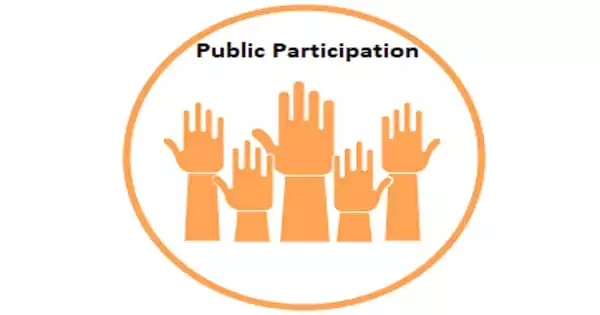Any process that directly engages the public in decision-making and gives full consideration to public input in making that decision is considered public participation. The inclusion of the public in the activities of any organization or project, also known as citizen participation. It is a process rather than a single event. It is a series of activities and actions carried out by a sponsoring agency over the course of a project to both inform and solicit feedback from the public. Stakeholder engagement is similar to public participation, but it is more inclusive. It allows stakeholders (those with an interest or stake in an issue, such as individuals, interest groups, or communities) to influence decisions that affect their lives.
In general, public participation seeks and facilitates the participation of those who may be affected by or interested in a decision. This isn’t just a nice or necessary thing to do; it leads to better outcomes and governance. This can apply to individuals, governments, institutions, businesses, or any other entity that has an impact on public interests. The principle of public participation states that those who are impacted by a decision have a right to participate in the decision-making process. The term “public participation” implies that the public’s input will have an impact on the decision.
Public participation can be viewed as a form of empowerment and a necessary component of democratic governance. This is a catch-all term for the various formal processes that incorporate public concerns, needs, and values into governmental decisions. This entails using techniques such as public meetings and hearings, advisory committees, interactive workshops, interviews, questionnaires, focus groups, and other methods to identify and address public concerns and preferences during decision-making.
Public participation is essential in democratic governance, and its ultimate goal is to make better public decisions. Some see the establishment of ongoing participatory processes in the context of knowledge management as a facilitator of collective intelligence and inclusiveness, shaped by the desire for the participation of the entire community or society. It excludes nonformal forms of public participation such as lobbying, letter campaigns, and protests.
Most recent federal laws authorizing or establishing federal programs, including the most recent environmental laws, require agencies to consult with the public during program design and implementation. If money is given to the states, these public participation requirements are passed on to the states as well.
Public participation is a component of “people-centered” or “human-centric” principles that have emerged in Western culture over the last thirty years and have influenced education, business, public policy, and international relief and development efforts. Humanist movements promote public participation. As part of a “people first” paradigm shift, public participation may be promoted. Governmental agencies or social organizations, based on the concept of democracy, collaborate with the public to find meaningful solutions to public issues.
















